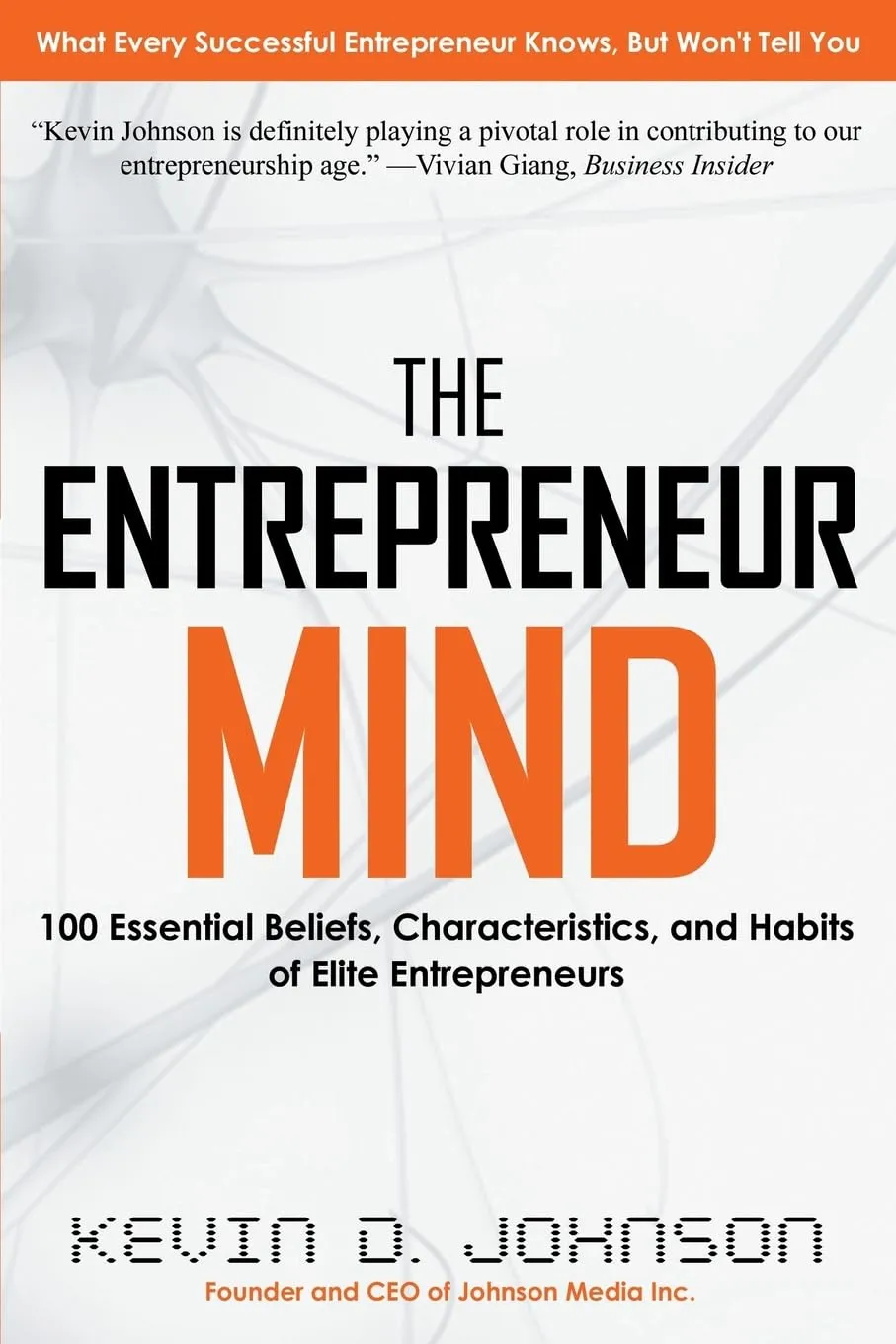About this book
Five Key Takeaways
- Think big to unleash your entrepreneurial potential.
- Create new markets to innovate and thrive.
- Work on business strategy, not just daily tasks.
- Assess risks to open doors for opportunities.
- Balance business and family for overall satisfaction.
-
Think Big to Maximize Potential
Entrepreneurial growth starts with big thinking. Local markets often restrict growth potential and limit how far your ambitions can go.
To break free from these limitations, entrepreneurs must strive for bold visions and look beyond their immediate surroundings or traditional markets.
Taking small, manageable steps toward large goals helps overcome fears and self-doubt. This gradual approach keeps big ideas within reach.
Building strong networks with mentors fosters an environment where expansive ideas can take root and gain valuable feedback.
Focusing on continuous learning and market adaptability enhances innovation and sustains long-term growth as businesses evolve.
When entrepreneurs think big, they redefine possibilities and aim for transformative impact, creating opportunities that resonate globally.
Without bold thinking, businesses risk stagnation, but expansive visions allow fresh innovation and access to untapped markets.
-
Creating New Markets Drives Success
Creating new markets, not competing in existing ones, offers businesses a unique advantage when growing and innovating (Chapter 5).
Focused industries often limit growth. Finding 'blue oceans,' untapped opportunities with minimal competition, maximizes scalability and rewards.
This strategy allows businesses to cater to unmet customer needs, helping them achieve premium positioning in the market.
Cirque du Soleil shows how breaking traditional business models leads to heightened profits and loyal, niche audiences.
Pioneering sectors without competition opens doors to remarkable revenue growth, contrary to competing within saturated spaces.
The lasting effects include differentiation and lower susceptibility to price wars, preserving profitability in the long term.
Competitive mimicry limits sales and undercuts brand uniqueness; innovation instead redefines customer expectations and markets themselves.
Ultimately, businesses that redefine markets build longevity and thrive, as they tap unmet demand instead of grappling for established market share.
-
Work On, Not Just In, Your Business
Many entrepreneurs exhaust themselves managing every operational detail, leaving little time for big-picture strategies that drive growth.
To grow effectively, entrepreneurs should delegate routine tasks. Building capable teams unburdens them from daily operations.
Establish systems to automate recurring processes, ensuring the business functions efficiently without depending on your constant involvement.
This shift gives entrepreneurs time to focus on innovation or scaling opportunities, key contributors to long-term sustainability.
Prioritizing strategy and leadership amplifies a venture’s capacity, reducing bottlenecks common in founder-dependent models.
Businesses often stagnate when their leaders are immersed in minutiae, unable to explore growth potential beyond the present state.
Stepping back empowers entrepreneurs to see broader opportunities, evolving their mindset from worker to visionary leader.
-
Not All Risk Should Be Feared
Many entrepreneurs see risk only as a threat to success, avoiding it entirely. This approach stifles growth opportunities.
Risk is inevitable in entrepreneurship. Fearing it blinds entrepreneurs to valuable chances hidden within calculated challenges.
Risks can pave the way to innovation that transforms a business model, industry, or even creates entirely new categories.
Entrepreneurs must learn to differentiate between reckless and informed risks. Mitigating uncertainty requires good preparation and research.
The author emphasizes assessing potential outcomes, pros and cons, and backup plans before committing to any risky initiative.
Preparation, market research, and networking build confidence to act despite uncertainty, increasing the likelihood of successful risk-taking.
While some avoid it completely, entrepreneurs who embrace risk wisely gain breakthroughs others never dare to pursue.
Mastering risk is vital, revealing opportunities that lead not just to survival but to extraordinary business milestones.
-
Prioritize Time Management Daily
Entrepreneurs often struggle with distractions and mismanaged priorities, which can squander precious time and derail their progress.
Develop strong routines. Schedule vital tasks first and eliminate unnecessary diversions, like interruptions or minor time sinks.
Track productivity regularly to identify areas needing recalibration. This ensures your focus remains on what drives real results.
Time continually aligns with execution. Effective management eliminates procrastination, which often kills opportunities before they begin.
By mastering urgency, entrepreneurs unlock consistent output, elevate confidence, and naturally improve their odds of meeting deadlines.
A team built around urgency mirrors this discipline, fostering a culture where productivity scales naturally and outcomes accelerate.
Prioritizing time mastery reduces burnout, motivates teams, and positions ventures for long-term, efficient success.
-
Systems Create Resilient Businesses
Basing businesses on people, not systems, often causes chaos when key personnel leave or adjust roles unexpectedly.
The fragility of people-based operations creates unnecessary dependencies, leaving businesses vulnerable to sudden disruptions.
This centralized dependency traps entrepreneurs. Scaling models suffer, and team members can't operate effectively autonomously.
Building durable, automation-ready systems enforces clarity, lowers confusion, and prepares businesses to weather turnover challenges.
The author's belief stresses making processes a priority over personalities. Leaders then focus less on replacing lost talent.
Productivity and culture stabilize where systems run the majority of operations. Dependence risk reduces alongside growing operational alignment.
Structured systems seamlessly integrate teams and customer processes, setting most high-performing organizations apart globally.
-
Ask for Help to Grow
Entrepreneurship feels isolating, yet self-reliance isn't always the best strategy for overcoming challenges or igniting growth.
Build a habit of seeking mentorship and partnership opportunities. Share your challenges with experienced individuals whose input drives clarity.
Acknowledge where expertise falls short. Ego dissolves. Asking fosters collaborative environments ripe for wisdom sharing across industries.
The author highlights seeking help not as a crutch but as vaulting toward knowledgeable connections who advance your growth curve.
Building insights through outside stories supercharges innovation pipelines. Each interaction reshapes critical-business decisions dynamically.
This practice eliminates stagnation when roadblocks appear too intimidating. It builds better-equipped, long-term decision-makers.
Neglecting mentorship denies vital growth prospects. Community creates accountability and mutual support systems for trials ahead.




















